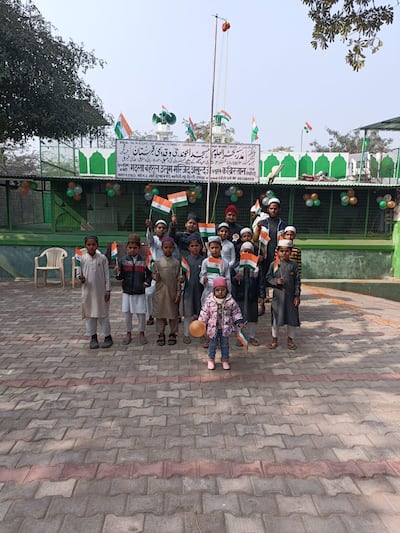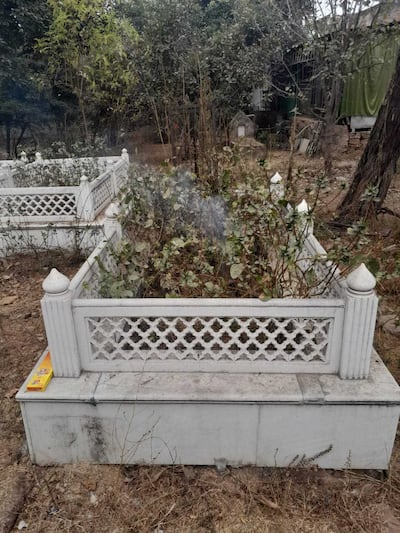The Delhi High Court has asked a federal land agency to explain its demolition of a centuries-old mosque that was razed in the Indian capital this week.
The Delhi Development Authority demolished the Akhunji Masjid in an operation carried out by bulldozers on the night of January 30.
An Islamic seminary and a cemetery attached to the mosque were also destroyed as police and paramilitary forces provided protection and erected steel barricades to keep people away.
The mosque was thought to be as old as the nearby 13th-century Qutub Minar, a Unesco world heritage site in Delhi's Mehrauli area.
The DDA, which reports to Prime Minister Narendra Modi’s government, is responsible for developing commercial land in the capital.
It claimed the Akhunji Masjid was an “illegal structure” and encroaching on a forest reserve, a claim rejected by the mosque management.

The age of the mosque is not certain but it is known to have undergone repairs in 1217, according to the Delhi-based oral historian and heritage conservationist Sohail Hashmi. It is mentioned in a list of historical monuments published in 1920 by the Archaeological Survey of India.
The mosque management said the DDA carried out the demolition in the dead of the night and removed debris before worshippers arrived for predawn prayers.
Zaffar Abbas, a member of the mosque committee, said authorities stopped the imam from entering the site when he arrived to conduct the Fajr prayers. They took his phone away to stop him from spreading the news or taking videos of the demolition.
“We received a call from the imam at around 1am saying that the authorities had erected barricaded but we did not sense any danger as we had not received any notice. In the morning, around 5am, he again called that DDA officers were at the mosque,” Mr Abbas told The National.
“We rushed to the mosque. We were about 200 people but were stopped by security personnel 500 metres away from the mosque. All roads to the mosque were blocked and there was heavy security deployment, about 10,000 personnel.”
About 22 children, most of them orphans, lived and studied at the seminary, he said.
“How could they come secretly and demolish our mosque? They did not care about the children at the madrassa?”
Mr Abbas said there was a dispute between the mosque committee and the DDA, which has conducted a survey of the area, since 1997.
“We have the court order where it has said the mosque cannot be demolished,” he said.

The Delhi High Court has asked the DDA to explain the demolition and why no prior notice was given to the Delhi Waqf Board or the mosque caretakers.
“Let the DDA file its reply within a period of one week clearly setting out the action that has been taken in respect of the concerned property and the basis thereof and as to whether any prior notice was given before taking the demolition action,” the court said on Thursday, after the waqf board, which looks after Delhi's mosques, filed a petition.
At least a dozen Muslim shrines, including mausoleums and heritage mosques in Delhi were demolished last year for allegedly being illegal structures.
At least another four mosques are on the demolition list, including the 150-year-old Sunehri Mosque in the upscale Lutyens area.
The New Delhi Municipal Council proposed its removal in August last year to ease traffic congestion.
After the mosque's imam challenged the move in the Delhi High Court, the council issued a notice in December inviting objections and suggestions on the proposal within a month.
The council said it had received 50,000 to 60,000 responses by email and was still going through them.

